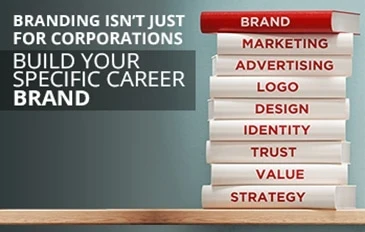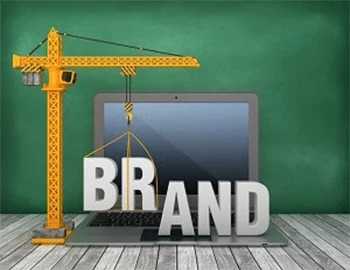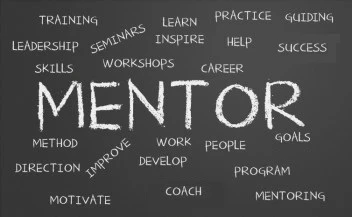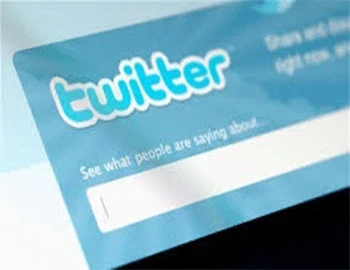Branding Isn’t Just for Corporations! Build Your Specific Career Brand

Branding Isn’t Just for Corporations! Build Your Specific Career Brand
Originally, brands were reserved for larger corporations, which were portrayed by their logo, marketing slogan, or even a theme song. In today’s era of Facebook, Twitter, and LinkedIn, it’s time for individuals in even the most specific markets to shine! Construction, engineering, and environmental professionals now have an avenue to market themselves and grow their own specific brand using these techniques.
First Impressions
Branding, or your online impression to others, is first set with your profile picture. Use an image that shows purely your professional side. Make sure to highlight your career by wearing work-appropriate clothing, a uniform, or a suit accordingly. Do not use a photo taken in a casual setting or showing clothing that you would not wear to a business meeting or client site. If needed, pose for a photo in your work attire and make sure the background is generic or relates to your construction, engineering, or environmental field of choice.
Networking
One of the leading ways to grow your professional brand online is to create a profile of a networking site such as LinkedIn, which facilitates employment search, advice, recommendations, and even offers the ability to stay up to date on best business practices. Using a professional photo and resume details, start creating your online presence.
Introduce yourself. Branding your professional presence starts with your introductory statement. View this as your online cover letter to introduce yourself to prospective employers. Employees, contractors, and consultants may use the services of professional writing agencies to assist them in creating their profile content for best branding opportunities.
Target your market. Broad or niche construction, engineering, or environmental skills can be showcased using networking tools. Always include current and past employment positions that are relevant to the story you want to build for your brand. For example, environmental professionals should include specific types of accomplishments to show their air, land, and water conservation efforts, and how their dedication to their career has impacted specific situations.
Build your reputation. Growing your brand includes obtaining validation of your skills and talents. Add credibility to your brand by reaching out to previous clients and specialists in your field to ask them for a recommendation. Once written, these can be included in your profile to increase trust and respect. A platform like LinkedIn also provides linked users with the ability to write an online recommendation that will appear on their profile. Always read what you are sent and verify that the information is accurate and professional before using the reviews.
Attention to Detail
Create a business profile that highlights your specific focus. All images and contents should be professional and communicate your skills in your given market. Using industry keywords in all posts will attract the networking contacts that you desire —for example, in engineering, use words like biochemical, civil, or aerospace. Your profile is a platform to show your trade knowledge and give advice to others in your construction field, contribute to engineering best practices, and even develop techniques for environmental improvements. Sharing ideas in construction, whether residential, commercial, or specialized, will help you grow your network. This can in turn boost your career and help you build your brand as a trusted professional in today’s market.
Michael DeSafey is a leading executive recruiter for professionals in the construction, engineering and environmental industries. He is currently the President of Webuild Staffing www.webuildstaffing.com . To learn more about Michael or to follow his blog please visit www.michaeldesafey.com
How to Leverage Your Professional Brand to Advance Your Career

How to Leverage Your Professional Brand to Advance Your Career
So, you’re looking for a new position or hoping to increase your company’s revenue? While you might have beefed up your resume, it’s also important to focus on building your professional brand. This goal is something to focus on in the short term while considering new job opportunities and to keep working on over time. The more effort you put into building your professional brand, the more results you can expect to obtain.
The bottom line is this: With greater credibility, people will trust you with bigger projects and ultimately feel satisfied with the results you deliver!
With a pattern of happy customers, albeit employers or private clients whom you complete construction projects for, you can attract more lucrative projects or full-time positions.
What is a Professional Brand?
A professional brand consists of the different impressions that a potential employer, customer or business forms about you. To create an authentic brand, you must work hard to build a solid reputation in your field.
Here are some tips that will help you along the way:
- Research the entry-level requirements for the construction or engineering profession you wish to enter.
- Seek out suitable career and educational opportunities to build this background.
- Start applying for jobs in your field. Keep in mind that your current company may not have all the roles needed to prepare for advancement in your field. You may need to take a second job or change employers over time to obtain the required experience.
- Build your network of contacts. This includes contributing to the field by attending professional development and industry events and by participating in online dialogues.
- Keep your resume updated with a detailed summary of your work experience and career achievements.
- Ask happy clients and bosses to write recommendation letters for you and keep them in your online portfolio.
Keep Your Professional Lifestyle
There is much competition for jobs in construction and engineering professions. Before you assume having a fabulous work history is all you’ll need, please realize that your brand rests on your ability to regulate your behavior when you’re not at work. Building a strong brand means keeping important boundaries between your professional and personal lives and being selective about what you post online.
Here are some things to keep in mind when enjoying your personal time:
- Don’t let yourself be filmed without your permission.
- Don’t post unprofessional comments, videos, or photographs anywhere on social media.
- Don’t give social media contacts unauthorized access to “tag” you or make changes to your professional or personal profiles.
- Monitor all websites and blogs that may be attributed to you and your company.
- Maintain a good credit record and avoid any criminal activities.
In construction and engineering professions, clients pay big money for projects. They want to place their trust in reliable professionals. They don’t want to worry about their projects having too much risk because there are problems with your work history or online behavior. If you don’t want a potential employer to use something from your past to influence their decision to hire you, don’t do it. By maintaining appropriate boundaries, you will be ready to assume more challenging roles in your career.
Michael DeSafey is a leading executive recruiter for professionals in the construction, engineering and environmental industries. He is currently the President of Webuild Staffing www.webuildstaffing.com . To learn more about Michael or to follow his blog please visit www.michaeldesafey.com
Finding The Right Resume Writing Service For Your Professional Brand

Finding The Right Resume Writing Service For Your Professional Brand
Investing money is often a proactive choice and can pay dividends in the future. Investing in your health by eating well can also pay off in the form of little medical debt and improved quality of life. Resumes also require investment from professionals in the construction, engineering, and environmental fields.
The resume is the universal first impression, and in the age of digital technology, there are no excuses for professionals to avoid polishing theirs. However, many professionals lack self-promotion skills which are the reason that resume writing services exist. These writers excel at highlighting a career seeker’s skill set, experience, and qualifications. The right service and writer will have the knowledge to develop your brand and market you to your specific job market.
Get Recommendations and Make Sure You Choose A Real Resume Writing Service
Connections are key, and knowing someone in your field who has a successful resume can be the first step to maximizing your hiring potential. Asking for a recommendation or two can lead you to some good writing candidates. Research is also necessary to ensure that you hire a certified writer who understands the engineering, environmental, and construction job markets and how market you to these potential employers. These professionals keep up with the current job markets with continuing education. The National Resume Writer’s Association, The Career Directors International Professional Association, and the Professional Association of Resume Writers and Career Coaches certify quality writers.
Buyer beware: some clerical services do resume writing, but these services tend to focus on word processing and formatting rather than the much-needed marketing edge necessary for your competitive field.
Avoid Fast Turnarounds, Paying By the Page, And Services Lacking Samples
When it comes to the use of words, less is often more. Avoiding services that charge per page will reduce the chance of receiving a resume full of unnecessary information or that takes too long to present your brand. Using unnecessary words, or padding, is the fastest way to make an employer lose interest in the applicant and their brand. Services that guarantee a fast turnaround are also suspect: often, this means that the writers are creating several resumes per day of low quality and paying little attention to each professional’s brand.
Inspecting a writer’s samples is a must, and the lack of samples should be regarded as a red flag. Crisp, clean samples with a good layout that attracts the eye, as well as samples that focus specifically on an applicant’s brand and unique skill set.
Engage With Resume Writers, Not Salespeople
Starting a conversation with a resume writer can begin with contacting a resume service and asking for a free consultation. Speaking with a writer versus a salesperson will reduce the chance that the service is low-quality. A quality writer will also be willing to provide samples of his or her work.
Online questionnaires and email evaluations, when used alone, should be avoided as well. Companies utilizing them often deliver poor results. The best practice is always to speak to a person who will ask insightful questions and gain an understanding of your professional brand.
Michael DeSafey is a leading executive recruiter for professionals in the construction, engineering and environmental industries. He is currently the President of Webuild Staffing www.webuildstaffing.com . To learn more about Michael or to follow his blog please visit www.michaeldesafey.com
Best Action Verbs For Your Resume
Best Action Verbs For Your Resume
Best Action Verbs For Your Resume In The Construction, Engineering And Environmental Industries

Time For A Mentor? Tips To Assist You In Finding The Perfect Mentor..

Time For A Mentor? Tips To Assist You In Finding The Perfect Mentor..
The best way to improve your skills in your chosen profession is to learn from those with a reputation; this is where networking with friends and mentors comes into play. Every potential apprentice can recall at least one person whose ethics or skills inspire him; a talented engineer or project manager may be the very reason you took up your profession. While you may consider these individuals untouchable, most are easily reached and able to foster a professional relationship with, if earnestly approached.
What Makes a Good Mentor?
The construction, engineering, and environmental industries offer several amazing individuals such as John Kenney of “Survivor,” Keith Donahue, Rowan Atkinson, Bill Nye, Terry Tamminen, Elon Musk, etc. Each of these men are very different and approached matters in their own way. While any fool can teach how not to lay foundation or build a condenser; it is best to look to individuals whose approach complements your own.
A good mentor is someone with strong ties to your career goals, though not necessarily within your industry. In actuality, it may be best to apprentice under an individual who career lays within a separate industry; John Kenney is a construction worker who also learned interpersonal skills on reality television, Rowan Atkinson studied as an engineer but also excelled in comedy, etc. As long as you can connect your career with one walked by a potential mentor, you will do well.
Reach Out to a Helping Hand..
It’s important to bear in mind that you want to come across genuinely interested in guidance, but not to the point of appearing sycophantic. It’s imperative that you gain the friendly respect of your peers. You want a potential mentor to perceive you as a comrade, not a leech.
You will likely run into obstacles, such as receptionists, answering machines and automated e-mail systems, on your quest. Show patience and commitment; don’t lose your temper if a receptionist turns you away, use it as an excuse to network. Ask what she would do in your role and wanted to reach the mentor. Appeal to the receptionist’s appreciation of control and superiority; asking for advice can warm them up to you. If this fails, try calling at a different time of day where that receptionist will be off the clock but the potential mentor is still accessible.
Following Through..
Once you’ve connected with a mentor, you should have a good read on how to interact with him; use that knowledge in future dealings. The ability to communicate from multiple approaches is a valuable skill for any career. Patience is also important; don’t be discouraged if you hear nothing after only a few e-mail exchanges or calls.
Create bonds with genuine individuals and always look for new opportunities. You might not find the perfect master builder, engineer, conservationist, or problem solver on your first try, but that doesn’t mean you should stop looking. Some of the best mentorships originate from mutual respect between a knowledgeable individual and someone eager to improve upon his craft.
Michael DeSafey is a leading executive recruiter for professionals in the construction, engineering and environmental industries. He is currently the President of Webuild Staffing www.webuildstaffing.com. To learn more about Michael or to follow his Blog please visit www.michaeldesafey.com
Tweet Your Way To Your Next Job – In Less Than 140 Characters

How To Use Twitter To Find A Job And Build A Professional Brand
Tweet Your Way To Your Next Job – In Less Than 140 Characters
Over last decade Social media has become a powerful networking tool, so much so, that many professional recruiters and human resource professionals are now utilizing it significantly to find exceptional job candidates.
Throughout the corporate world whether you are in the construction, engineering, environmental or any other industry, harnessing the power of twitter can help you gain visibility, feature accomplishments and even obtain your next exceptional career advancement opportunity.
To be effective with Twitter though, you need to plan out a long term strategy for using it as a professional; social media can help you accomplish great things, but it may also be your
worst nightmare if done incorrectly. Managing your profile, building your network and timing tweets are all important aspects to consider in utilizing Twitter to find your next career opportunity.
Your Profile
Your profile presents you to the world. It is the first thing that an individual will see when they look at your Twitter profile. So make sure it is professional and consistent with all your social media accounts.
Upload a professional headshot of yourself; describe your skills and occupation concisely. Your profile should lead the reader to want to learn more about you and direct them to a location where they will be able to get this detailed information.
Profile Consistency
Your online image should be consistent across all your professional social media accounts; whether Twitter, LinkedIn, Facebook, etc.. you need to create a brand that sticks out in the viewer’s mind. So whether you are on Twitter or LinkedIn that branding needs to be the same.
Consistency when it some to social media is of prime importance. Your Twitter handle and other social media account user names should utilize your name. This will allow recruiters to find you quickly online through a google or social media account search, pulling up all the relevant information about you quickly.
It is suggested to use your name as a handle (ie..@Johndoe); if for any reason your name is not available you can always include your profession in your handle (ie.. @jobdoe_UrbanPlanner). This will add an additional level of credibility to your professional image.
As Twitter limits you to 160 characters in your profile you need to additionally describe your professional background precisely and lead the reader to either a personal website or LinkedIn profile where they can learn more detailed information about you and your qualifications.
Start Following People
As twitter is essentially an open network, it allows you to follow just about anyone you may want and communicate with individuals you may not have any relationship with currently. This is a great tool for building your professional networks; circulating your name among other professionals and leaders within your specific industry will get you noticed and recognized by others.
A good strategy is to begin following influential industry leaders; the Project Managers, Vice Presidents, Presidents of other firms you may want to work for. It will allow you some insight into their companies, projects, corporate needs. By utilizing a basic search on Twitter or any directory service you should be able to find these individuals rather quickly.
Make your tweets count.
So your profile is now complete and you have begun following individuals and building your network. Now is the time to begin tweeting, sharing your thoughts and presenting to the world your skills, accomplishments. Your objective now turns to building the reputation that will get you noticed by industry leaders.
You now have a platform that allows you to share your expertise, but you need to use if effectively. Present yourself as an expert in your field, tweet timely and relevant information that your followers will have some interest in. Utilizing current news, projects, industry developments, etc.. are all good things to tweet. The most effective tweets will be those that link your social media or personal websites together. Posting an article on LinkedIn and tweeting about it or placing a free document on your personal website that individuals can download will all garner attention and showcase your expertise.
Being perceived as an expert will greatly enhance your abilities to be found by recruiters. As today’s job market is very competitive you need to show the value you would bring to an organization; Twitter and other social media allow you an easy and free way to do this, impacting directly the most influential people to your job search.
Michael DeSafey is a leading executive recruiter for professionals in the construction, engineering and environmental industries. He is currently the President of Webuild Staffing (www.webuildstaffing.com ). To learn more about Michael or Follow his Blog please visit www.michaeldesafey.com
